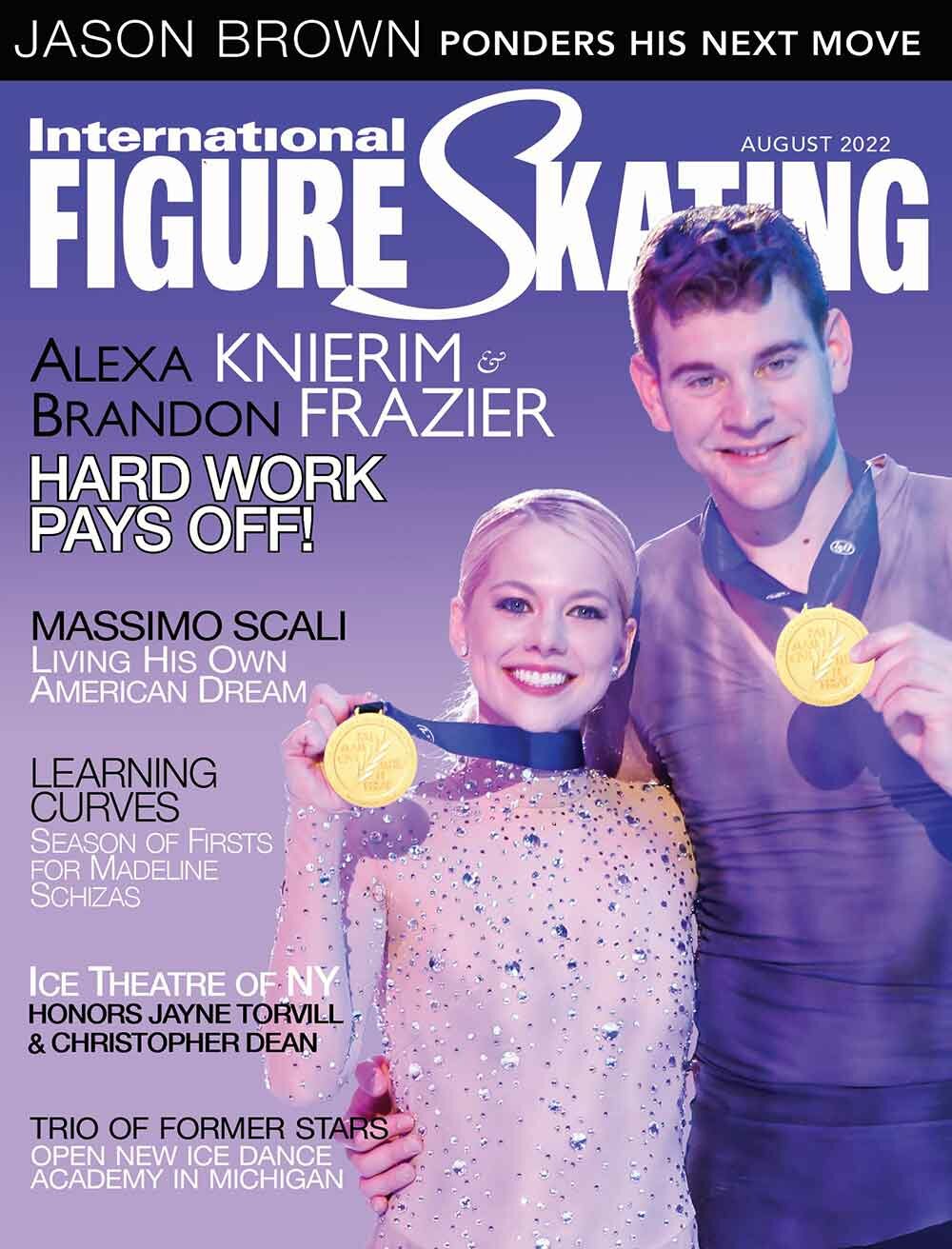
As Kaetlyn Osmond closed out her long program at the 2017 World Championships, she knelt on the ice, feeling a sense of excitement and joy she had not experienced for a long time.
Osmond produced the free skate in Helsinki, Finland, that she had been searching for all season, and one good enough to propel her to a silver-medal finish — the first Canadian lady to do so since Joannie Rochette in 2009. That night in Helsinki made her more emotional than perhaps she had ever been on the ice Osmond said.
“I was down on my knees at the end of my long program and I was just so excited. I let out the biggest sigh of relief. It’s so hard to explain that feeling. I can just say that it was a pure joy, and that’s what I had been looking for all season. I’m not usually the most emotional person on the ice, and that was first time I was almost actually going to cry. I think I got teary-eyed, but not a full on cry. It was very emotional.”
As she left the ice, Osmond saw the beaming smile on the face of her long- time coach, Ravi Walia. “I think Ravi was more excited than I was. To see that excitement on his face made me even more excited,” Osmond said. “It was a really phenomenal moment.”
The scores she earned in Helsinki — 75.98 for the short program, 142.15 for the free and 218.13 overall — were personal bests. It was further validation that she was where she wanted to be. “I still have trouble comprehending it, but it gives me so much motivation for next year,” Osmond said. “To make the World podium was such a shock to me because I never saw myself in that position, and to say that I am apparently the second-best skater in the world, is truly incredible.”
A broken leg suffered in a freak practice fall in September 2014 kept her off the ice for more than a year, and left Osmond wondering whether she would ever compete again, let alone at a high level. “There was a lot of doubt about my skating the last couple of years, and it took a while for me to feel like I was back,” she said.
As a fresh-faced 17-year-old, Osmond won the first of three Canadian titles and finished eighth in her Worlds debut in London, Ontario. “Thinking back to those Worlds and how great it felt to be among so many top skaters, I would never have thought my career would drop as much as it did after that,” Osmond reflected. “After breaking my leg and debating whether my career was over, then coming back and never getting the sense of joy when I was competing again — I thought I had lost that feeling forever.
“It wasn’t until the end of my long program at Worlds that I felt the same way I did when I was 17. Having that feeling again was something I longed for, and I’m so happy that it’s back. Everything last season gave me motivation for Worlds,” she said. “My first competition at Finlandia, where I competed against other top skaters and won — it wasn’t just the fact that I won, but that I skated well at my first competition. Then, at each competition I felt like I was getting stronger and stronger, and I felt like I learned something at each event.”
Earning a place at the Grand Prix Final in Marseille — again, the first Canadian lady since Rochette — also showed Osmond she was working her way toward a place among the best in the world. “To make the Grand Prix Final and come fourth was definitely an incredible feeling, especially because everyone skated so great,” the 21-year-old said.
Osmond won the Canadian title in Ottawa last January — the same city in which she had claimed a national crown in 2014. It atoned for the disappointment a year ago, when she finished third and did not make the World team.
Even though Four Continents did not go as well — Osmond finished fourth in Gangneung, South Korea — there was no derailing the confidence that was building inside her. “It wasn’t just the great skates during the year that helped me at Worlds, it was also the bad skates I had that helped me learn,” she said. “Everything combined gave me the right amount of motivation and confidence for Worlds.”
As it turned out, a date with history was waiting for Osmond and her teammate Gabrielle Daleman, who claimed the bronze medal — the first time two Canadian ladies had stood on the same podium at a World Championships. Their combined placements secured a third spot for Canada at the 2018 Olympic Winter Games for the first time in half a century.
“There was a sense of joy, I think, for both of us, that we represented Canada well,” Osmond said. “Hopefully, it will give future Canadian ladies motivation to believe that they can also compete at that level.”
Osmond, who was part of Canada’s silver-medal effort in the Team Event in Sochi, Russia, said she never thought about going to the Olympics the year after competing at her first Worlds in 2013. “I was always thinking ‘OK, 2018 is my goal.’ It’s still a ‘I have no idea how that even happened’ kind of feeling.”
Though she cherishes the medal she brought home from Sochi, those Olympics were bittersweet. She finished 13th in the singles event and was not happy with her performances. Now she believes she can challenge for her own Olympic medal in 2018. “I was upset with how I skated in my individual event,” Osmond said. “My main goal after Sochi was to get back to the Olympics and compete the way I did at Worlds this year — and feel proud, no matter what the outcome.
“I know it’s going to be hard. There were a lot of skaters who didn’t compete their best this year and I know that I am going to have to fight for everything I do next year to come close to that podium.”
Osmond returned to her small hometown of Marystown in Newfoundland and Labrador in April, and the province welcomed her to celebrate her silver-medal finish at Worlds. “I don’t get back there very often, but it always feels so special,” Osmond said. “Seeing family and friends, fans and people who supported me even when I was injured and off the ice. It’s because of them that I felt the motivation to come back and compete well.
“I felt so lost when I was competing badly (in the season after her injury) and I felt bad for the people who supported me. That disappointment gave me so much motivation to go back and be able to say that it’s because of them that I am able to continue to do what I am doing. It means a lot to me.”
(Originally published in the IFS July/August 2017 issue)
PRE-SEASON COMPETITON:
2017 SKATE CANADA AUTUMN CLASSIC





